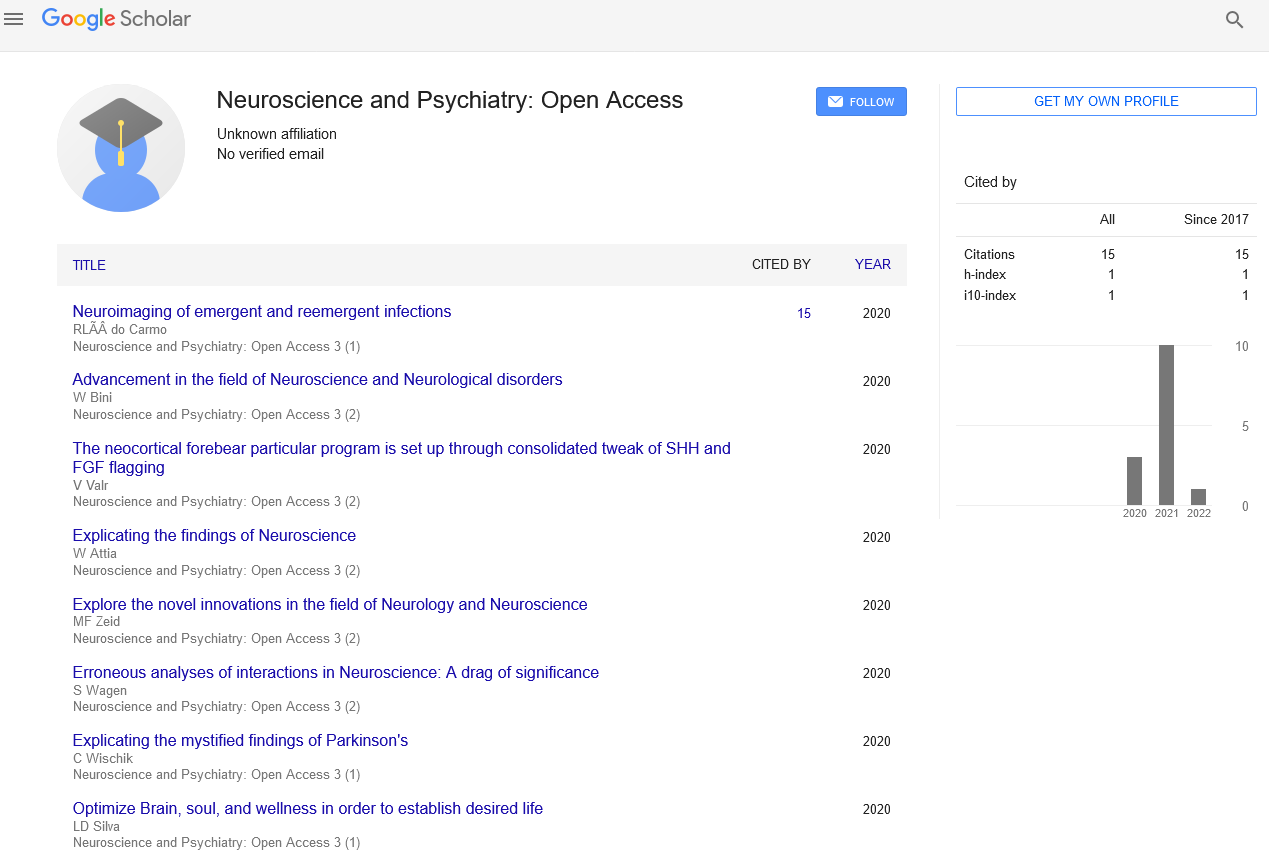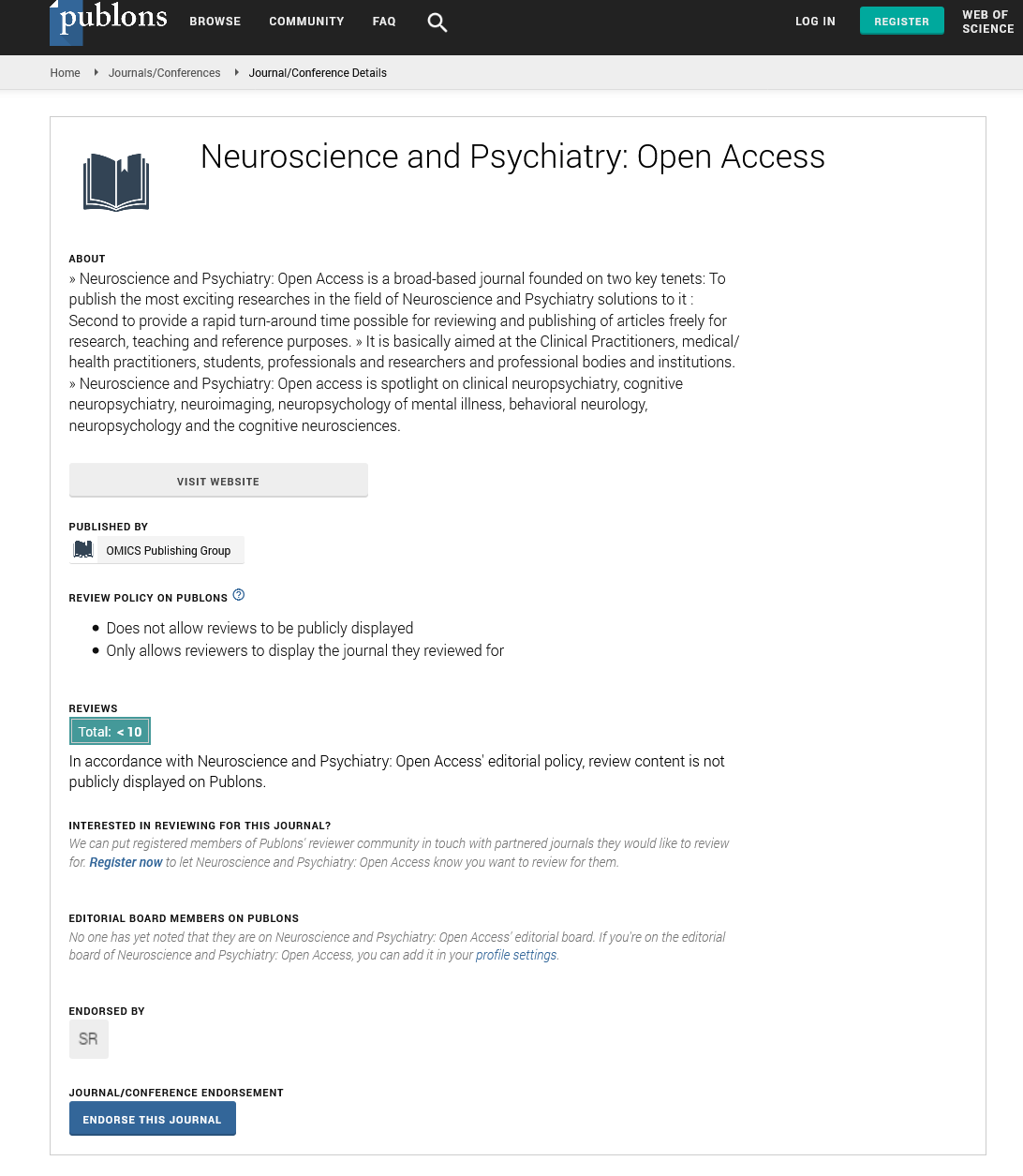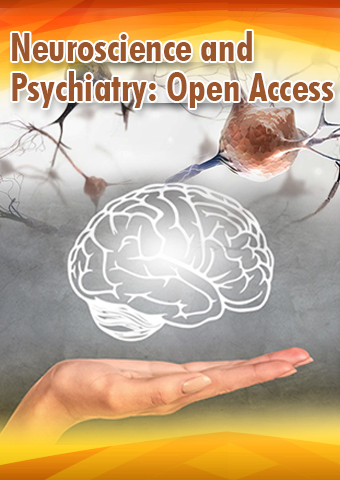Perspective - Neuroscience and Psychiatry: Open Access (2023) Volume 6, Issue 5
Unraveling the Enigma of Neurodegeneration: Understanding the Causes, Progression, and Promising Paths to Treatment
- Corresponding Author:
- Martijn Arns
Department of Neuropsychiatry, Netherlands Institute for Neuroscience, Amsterdam, The Netherlands
E-mail: mart.ar74@brainclinics.com
Received: 06-09-2023, Manuscript No. NPOA-23-119648; Editor assigned: 08-09-2023, PreQC No. NPOA-23-119648 (PQ); Reviewed: 22-09-2023, QC No. NPOA-23-119648; Revised: 29-09-2023, Manuscript No. NPOA-23-119648 (R); Published: 09-10-2023, DOI: 10.47532/npoa.2023.6(5).126-127
Introduction
Neurodegeneration is a broad term encompassing a spectrum of debilitating and often irreversible conditions that affect the central nervous system. These conditions, including Alzheimer’s disease, Parkinson’s disease, and Amyotrophic Lateral Sclerosis (ALS), share a common theme: The progressive deterioration of nerve cells, leading to a decline in cognitive and motor functions. In this article, we will delve into the complex world of neurodegeneration, exploring the underlying causes, the cascade of events that lead to its progression, and the promising approaches researchers are pursuing to combat these devastating diseases.
To understand neurodegeneration, we must first comprehend the intricate workings of the nervous system. The human brain is a highly organized network of neurons that communicate through electrical and chemical signals. Neurons are the building blocks of this system, and their health and proper functioning are crucial for maintaining normal brain activity.
In neurodegenerative diseases, neurons become damaged, leading to their dysfunction and death. This deterioration occurs due to various factors, including genetic mutations, environmental influences, and the accumulation of abnormal proteins, which often trigger a cascade of destructive events.
Neurodegenerative diseases can be attributed to a combination of genetic and environmental factors. Some diseases, such as Huntington’s disease, are primarily caused by genetic mutations. Others, like Alzheimer’s disease and Parkinson’s disease, have both genetic and environmental contributors.
Description
Genetic factors
In certain cases, mutations in specific genes can predispose individuals to neurodegenerative diseases. For example, mutations in the APP, PSEN1, and PSEN2 genes are linked to early-onset Alzheimer’s disease, while mutations in the LRRK2 gene are associated with Parkinson’s disease.
Environmental factors
Environmental factors like exposure to toxins, traumatic brain injuries, and lifestyle choices may increase the risk of developing neurodegenerative diseases. For instance, chronic exposure to pesticides has been linked to an increased risk of Parkinson’s disease.
Several common pathological features characterize neurodegenerative diseases:
• In many neurodegenerative diseases, abnormal protein aggregates accumulate within
neurons. In Alzheimer’s disease, beta-amyloid plaques and tau tangles disrupt neuronal
function. In Parkinson’s disease, misfolded alpha-synuclein proteins form lewy bodies.
• Chronic neuroinflammation plays a significant role in disease progression. Microglia, the
brain’s immune cells, become activated and release inflammatory molecules that can damage
neurons.
• An imbalance between free radicals and the
body’s ability to neutralize them can lead to
oxidative stress, causing neuronal damage.
• Mitochondria, the cell’s powerhouses, are
essential for energy production. Dysfunction
in these organelles can result in energy
deficits, affecting neuronal health.
The progression of neurodegeneration is a multifaceted process that typically unfolds over years or even decades. In the initial stages, neurodegenerative diseases often present with subtle symptoms that are easy to overlook. For example, mild memory issues may be an early sign of Alzheimer’s disease. As the condition progresses, it manifests with disease-specific symptoms. For instance, Parkinson’s disease may lead to tremors and motor difficulties. Over time, cognitive and motor functions continue to deteriorate, often leading to severe disability. Alzheimer’s disease can progress to the point of profound memory loss, while ALS can result in complete paralysis. As the disease advances, the burden on caregivers and families intensifies. Providing care for individuals with neurodegenerative diseases becomes increasingly challenging.
While neurodegenerative diseases are daunting, the scientific community is actively researching potential treatments and interventions. Promising avenues include:
• Targeted therapies: Researchers are
developing drugs that aim to reduce the
accumulation of abnormal proteins, halt
neuroinflammation, or promote neuronal
survival.
• Stem cell therapy: Stem cell research offers
the possibility of replacing damaged neurons
with healthy ones, potentially restoring lost
function.
• Gene editing: Advancements in gene editing
techniques, such as CRISPR-Cas9, hold
promise for correcting genetic mutations that
contribute to neurodegenerative diseases.
• Lifestyle interventions: Lifestyle choices,
including a balanced diet, regular exercise,
and cognitive stimulation, can have a positive
impact on brain health and may help reduce
the risk of developing neurodegenerative
diseases.
One critical aspect of managing neurodegenerative diseases is early diagnosis. Detecting these diseases in their initial stages can facilitate more effective interventions and support. Biomarkers, such as specific proteins or imaging techniques, are being developed to aid in the early identification of these conditions.
Conclusion
Neurodegenerative diseases are among the most challenging health problems of our time, affecting millions of people worldwide. As our understanding of the causes and progression of these diseases deepens, there is reason to hope for more effective treatments and preventive measures.
Continued research, the development of innovative therapies, and an emphasis on early diagnosis are all key factors in the quest to combat neurodegeneration. While the road ahead is long and complex, the pursuit of answers and solutions remains unwavering, as we strive to alleviate the suffering of those affected by these devastating conditions and, ultimately, find a cure.


